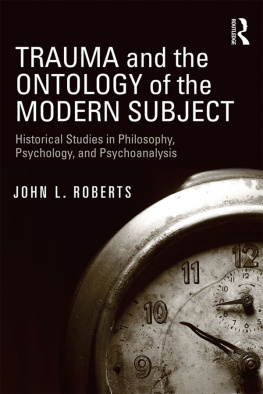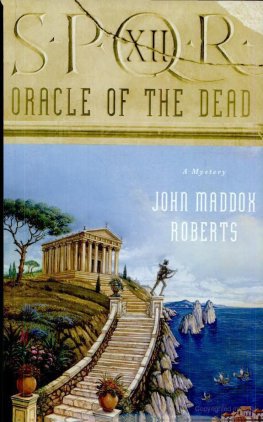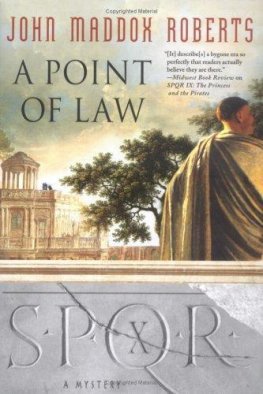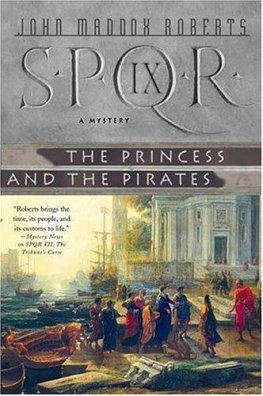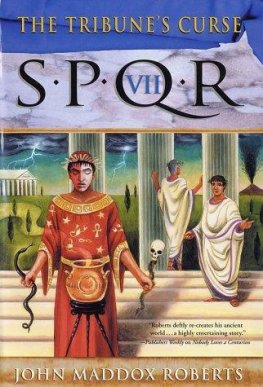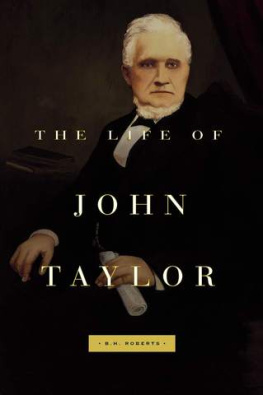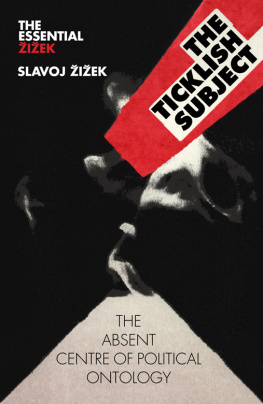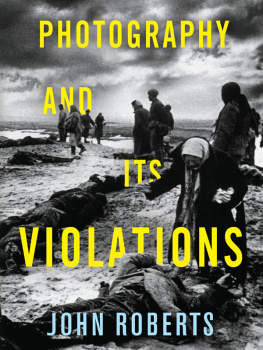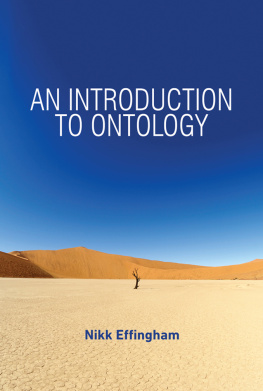John L. Roberts - Trauma and the Ontology of the Modern Subject
Here you can read online John L. Roberts - Trauma and the Ontology of the Modern Subject full text of the book (entire story) in english for free. Download pdf and epub, get meaning, cover and reviews about this ebook. year: 2017, publisher: Taylor & Francis (CAM), genre: Religion. Description of the work, (preface) as well as reviews are available. Best literature library LitArk.com created for fans of good reading and offers a wide selection of genres:
Romance novel
Science fiction
Adventure
Detective
Science
History
Home and family
Prose
Art
Politics
Computer
Non-fiction
Religion
Business
Children
Humor
Choose a favorite category and find really read worthwhile books. Enjoy immersion in the world of imagination, feel the emotions of the characters or learn something new for yourself, make an fascinating discovery.
- Book:Trauma and the Ontology of the Modern Subject
- Author:
- Publisher:Taylor & Francis (CAM)
- Genre:
- Year:2017
- Rating:4 / 5
- Favourites:Add to favourites
- Your mark:
- 80
- 1
- 2
- 3
- 4
- 5
Trauma and the Ontology of the Modern Subject: summary, description and annotation
We offer to read an annotation, description, summary or preface (depends on what the author of the book "Trauma and the Ontology of the Modern Subject" wrote himself). If you haven't found the necessary information about the book — write in the comments, we will try to find it.
Trauma and the Ontology of the Modern Subject — read online for free the complete book (whole text) full work
Below is the text of the book, divided by pages. System saving the place of the last page read, allows you to conveniently read the book "Trauma and the Ontology of the Modern Subject" online for free, without having to search again every time where you left off. Put a bookmark, and you can go to the page where you finished reading at any time.
Font size:
Interval:
Bookmark:
First published 2018
by Routledge
2 Park Square, Milton Park, Abingdon, Oxon OX14 4RN
and by Routledge
711 Third Avenue, New York, NY 10017
Routledge is an imprint of the Taylor & Francis Group, an informa business
2018 John L. Roberts
The right of John L. Roberts to be identified as author of this work has been asserted by him in accordance with sections 77 and 78 of the Copyright, Designs and Patents Act 1988.
All rights reserved. No part of this book may be reprinted or reproduced or utilised in any form or by any electronic, mechanical, or other means, now known or hereafter invented, including photocopying and recording, or in any information storage or retrieval system, without permission in writing from the publishers.
Trademark notice: Product or corporate names may be trademarks or registered trademarks, and are used only for identification and explanation without intent to infringe.
British Library Cataloguing-in-Publication Data
A catalogue record for this book is available from the British Library.
Library of Congress Cataloging-in-Publication Data
Names: Roberts, John L.
Title: Trauma and the ontology of the modern subject : historical studies
in philosophy, psychology, and psychoanalysis / John L. Roberts.
Description: New York : Routledge, 2018. | Includes bibliographical
references and index.
Identifiers: LCCN 2017016010 (print) | LCCN 2017034969 (ebook) |
ISBN 9781315681931 (Master) | ISBN 9781317401650 (ePub) | ISBN
9781317401667 (Web PDF) | ISBN 9781317401643 (Mobi/Kindle) |
ISBN 9781138826724 (hardback : alk. paper) | ISBN 9781138826724
(paperback : alk. paper) | ISBN 9781315681931 (ebk)
Subjects: LCSH: Psychic traumaHistory. | Psychology. | Psychology. |
Psychoanalysis.
Classification: LCC RC552.T7 (ebook) | LCC RC552.T7 R63 2018 (print) |
DDC 616.85/21dc23
LC record available at https://lccn.loc.gov/2017016010
ISBN: 978-1-138-82672-4 (hbk)
ISBN: 978-1-138-82673-1 (pbk)
ISBN: 978-1-315-68193-1 (ebk)
Typeset in Bembo
by Apex CoVantage, LLC

Kareen R. Malone
I am deeply grateful to Kareen Malone, Christopher Aanstoos, and Hugh Crawford, as well as colleagues and students in the Psychology Department at the University of West Georgia, who have nurtured and encouraged this project. I also wish to extend my gratitude to colleagues outside of my department, who have been helpful all along the way. Without the support of my family, and my intimate circle of friends, this work would have not been possible.
Portions of are from my article in press Obsessional Subjectivity in Societies of Discipline and Control, appearing in Theory & Psychology .
Recent scholarship has inquired into the socio-historical, discursive genesis of trauma. Trauma and the Ontology of the Modern Subject, however, seeks what has not been actualized in trauma studies that is, how the necessity and unassailable intensity of trauma is fastened to its historical emergence. We must ask not only what trauma means for the individual persons biography, but also what it means to be the historical subject of trauma. In other words, how does being human in this current period of history implicate ones lived possibilities that are threatened, and perhaps framed, through trauma? Foucauldian sensibilities inform a critical and structural analysis that is hermeneutically grounded.
Drawing on the history of ideas and on Lacans work in particular, John L. Roberts argues that what we mean by trauma has developed over time, and that it is intimately tied with an ontology of the subject; that is to say, what it is to be, and what it means to be human. He argues that modern subjectivity as articulated by Heidegger, Levinas, and Lacan is structurally traumatic, founded in its finitude as self-withdrawal in time, its temporal self-absence becoming the very condition for agency, truth, and knowledge. The book also argues that this fractured temporal horizon as an effect of an interrupting Otherness or alterity is obscured through the discourses and technologies of the psy-disciplines (psychiatry, psychology, and psychotherapy). Consideration is given to social, political, and economic consequences of this concealment.
Trauma and the Ontology of the Modern Subject will be of enduring interest to psychoanalysts and psychotherapists as well as scholars of philosophy and cultural studies.
John L. Roberts is Associate Professor in the Department of Psychology, University of West Georgia. His research interests include theoretical and philosophical approaches to psychology, histories of consciousness and subjectivity, and psychoanalysis.
Some time ago, I sat with a man dying of cancer. Sleepless in the days before his death, he sat on a couch in his modest home speaking with me of the most significant experiences of his life his parents divorce, fathers death, and relationship with an estranged son. As his life dwindled, he became drawn to the receding horizon of those elusive questions: Who am I? Who have I become? Who was I in the end? I felt honored to be with my friends struggle, to be allowed into this most precious of spaces, where his being could be actualized and memorialized. I am always deeply affected by these conversations, where we take hold of our own being in death and in life. Yet, I am also curious about this experience. Where did it come from, and what does it mean to ask oneself who one is? Strikingly, however, the pursuit of self-knowledge is far from an optional one, a luxury of our age. For us modern Western subjects, questions of identity premised on biographical memory inform our own sense of responsibility to others and ourselves. We may say, Im sorry to disappoint you, but thats just who I am . Underlying conventional moral imperatives is the more foundational injunction to take possession of who one is . Therefore, we place an ethical value on knowing and speaking to our own idiosyncratic being, which we have the obligation to reconstruct through our own time.
Ones reconstruction of biography, however, can break down, leaving gaps in memory. In other words, memory may be disrupted, or even diseased. Trauma is precisely that psychological and cultural architecture that allows us to understand how events of both formative and intervening intensity may dislocate our sense of who we are, and how pathogenic memories form. Certainly for contemporary life, the intensities of rape, torture, genocide, and accidents are thought of as traumatic. But this was not always the case. Suffering, as the contingent intervention of external events with searing intensity, did not always bear upon the biographical being of the subject, pressing into memory as unrepresentable, unmasterable. As Ian Hacking (1995) remarks, One feature of the modern sensibility is dazzling in its implausibility: the idea that what has been forgotten is what forms our character, our personality, our soul (p. 209). Beginning in the nineteenth century, trauma first emerges in connection with railway accidents as railway spine, connected as part of a wide web of knowledge around the doubling of consciousness, which included mesmerism, multiple personality, and hysteria all involving an interruption in recollected experience. What follows from Charcot (1889), Freud (1920/1961), and Janet (1925) to van der Kolk (2014) and other clinical discourses is that trauma appears etched into the fabric of not only the way we think and speak, but also how we are affected and constituted. Such discourses embody the tension between repression and dissociation as ordering theoretical principles, which implicate the status of trauma as a discrete experience over against one more structural to the modern subject. Pursuant to differing theoretical strategies, and responding to differing socio-historical conditions, the shifting ground of psychiatric and psychological classification, thus, indicates important yet distinctive ways in which our struggles are encoded, recognized, and addressed. For instance, PTSD (post-traumatic stress disorder), as well-documented (Young, 1995), foregrounds acute, event-based trauma, whose prototypical instance is the wartime experience of the American Vietnam soldier, and more recently such narrowly constituted understandings have been challenged to include more developmentally chronic deprivations and violations (e.g., Herman, 1992). These formulations are central for the disease model understanding of trauma, and for its standardized, technological remediations in cognitive and behavioral therapies, among others. Alongside these developments, psychoanalytic thinking persists, trauma being the originary epicenter of a division of human being, and fundamentally formative of a subjectivity circulating around events in early life that displace memory. Trauma especially for Lacanian perspectives alters us in taking something from us, alienating us from ourselves, but giving us a different, an Other being in return. Moreover, these understandings of trauma as primordial would ostensibly include existential-phenomenological renderings such as that by Stolorow (2011) or Bracken (2002), where our being-in-the-world is unsettled as part of our condition as beings thrown into time.
Font size:
Interval:
Bookmark:
Similar books «Trauma and the Ontology of the Modern Subject»
Look at similar books to Trauma and the Ontology of the Modern Subject. We have selected literature similar in name and meaning in the hope of providing readers with more options to find new, interesting, not yet read works.
Discussion, reviews of the book Trauma and the Ontology of the Modern Subject and just readers' own opinions. Leave your comments, write what you think about the work, its meaning or the main characters. Specify what exactly you liked and what you didn't like, and why you think so.

